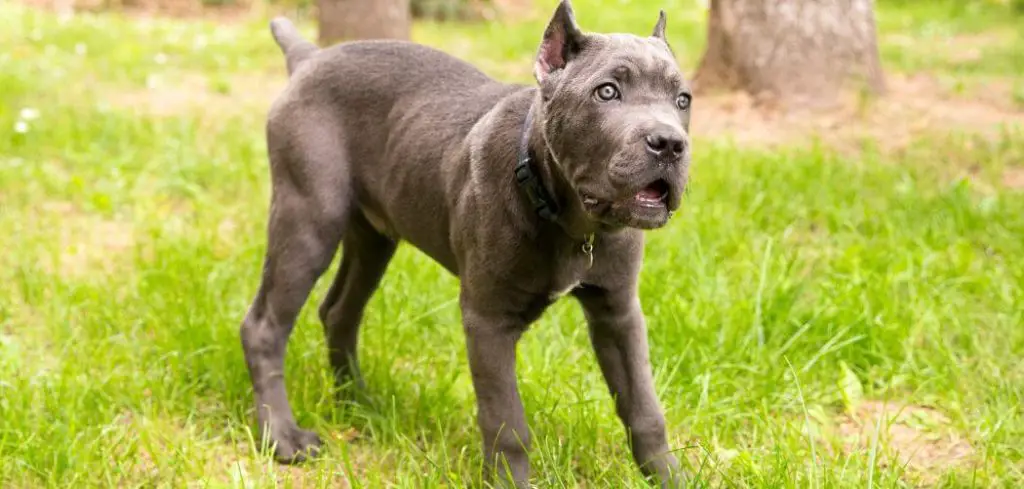It can be alarming to hear your dog coughing over and over again, especially if it doesn’t stop or worsens over time. While occasional coughing may be harmless, excessive or persistent coughing could indicate a deeper health issue.
We outline the common causes of excessive coughing in dogs, what you can do at home, and when to seek veterinary help.
Table of Contents
Dog Excessively Coughing — Why It Happens
When a dog is excessively coughing, it usually signals irritation or inflammation in the respiratory system. This can be due to infections like kennel cough or pneumonia, chronic conditions such as heart disease or collapsing trachea, or irritants like smoke and allergens.
Some causes are mild and self-limiting, while others may quickly become life-threatening.

Dog Excessively Coughing: Common Causes
Kennel Cough
Kennel cough is a highly contagious upper respiratory infection, common in places like shelters, boarding facilities, or dog parks.
It leads to a dry, hacking cough that often sounds like your dog is trying to clear their throat. You may also hear a honking noise.
Though most cases are mild and resolve on their own, kennel cough can sometimes progress to pneumonia in puppies or senior dogs, especially those with weakened immune systems.
Collapsing Trachea
This condition is more common in small breeds like Yorkies, Pomeranians, and Chihuahuas.
The trachea (windpipe) loses its structural integrity, causing it to collapse inward and lead to coughing—especially during excitement, exercise, or pulling on the leash.
It results in a chronic, goose-honk sounding cough and may worsen over time if not managed.
Read more: Dog Excessively Licking Feet (Here’s why)
Heart Disease
In dogs, congestive heart failure can cause fluid buildup in the lungs, which triggers frequent coughing.
The cough may be worse at night or after exercise and is often accompanied by other signs like labored breathing, fatigue, or fainting.
Heart-related coughing typically develops gradually and becomes more noticeable as the condition progresses.
Chronic Bronchitis
Chronic bronchitis in dogs is a long-term inflammation of the airways, not caused by infection.
It leads to persistent coughing, especially after physical activity or in the morning.
This condition is progressive and more common in older dogs. While not immediately dangerous, it can reduce quality of life and lead to secondary complications if untreated.
Foreign Body or Irritant Inhalation
Sometimes a dog inhales something irritating, like dust, grass awns, smoke, or even a small object.
This can trigger sudden and intense coughing fits, sometimes accompanied by gagging or pawing at the mouth.
If a foreign object is lodged in the airway, it can obstruct breathing and become a medical emergency.
Pneumonia
Pneumonia is a serious lung infection caused by bacteria, viruses, or aspiration (inhaling food or vomit).
It leads to wet, productive coughing and may be accompanied by lethargy, fever, difficulty breathing, and nasal discharge.
This condition requires prompt veterinary treatment and can be fatal if left untreated.
What to Do If Your Dog Is Excessively Coughing
If your dog has a mild, dry cough and seems otherwise healthy, you can monitor them at home for a day or two. Limit their activity and keep them away from other dogs in case the cause is infectious.
Ensure your home is free from smoke, aerosols, or dust that could irritate the airways. Use a harness instead of a collar to avoid pressure on the trachea, especially in small breeds.
Make sure your dog stays hydrated and comfortable. A humidifier in their resting area may help ease breathing.
If the cough becomes frequent, worsens, or lasts more than a few days, a vet visit is necessary to identify the underlying cause and prevent complications.
When to Call or Visit Your Vet
You should contact your veterinarian promptly if your dog:
Coughs continuously or violently
Has trouble breathing or breathes rapidly
Shows signs of fatigue, fever, or loss of appetite
Coughs up blood or produces mucus
Has a known heart condition and develops a new cough
Any dog that seems distressed, weak, or unwell in addition to coughing should be seen right away.
Read more: Why Does My Dog Excessively Like Me? (Here’s why)
Key Takeaway
Excessive coughing in dogs can be caused by anything from minor irritants to serious health conditions.
Pay attention to the type of cough, accompanying symptoms, and changes in behavior.
Mild cases may resolve on their own, but ongoing, intense, or worsening coughing requires a vet’s evaluation.
With prompt care, most causes of excessive coughing in dogs can be managed effectively, ensuring your pet’s comfort and long-term health.
